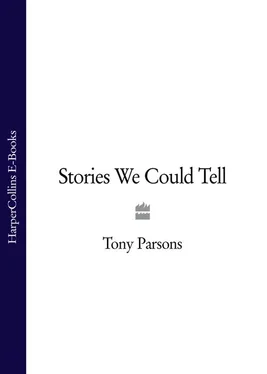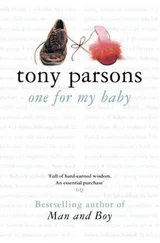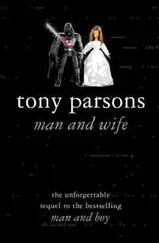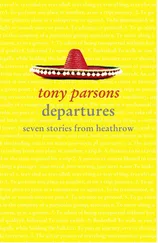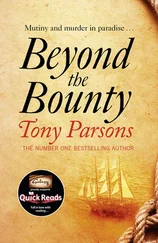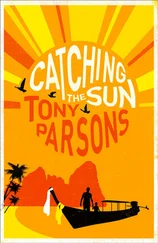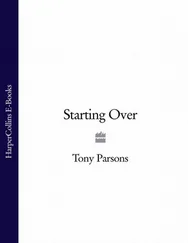‘So you work at night,’ Misty said to Terry’s father. ‘Just like us.’
Terry’s dad shifted awkwardly in his seat, considering the prawn drowning in pink sauce on the end of his teaspoon.
‘Hmmm,’ he said. ‘Night work. Working at night. Yes.’
‘You hate it, don’t you, the night work?’ Terry’s mum said, prompting him. ‘He hates the night work,’ she told Misty in a stage whisper.
‘Why’s that then, Dad?’ Terry said, rearranging his prawn cocktail with his teaspoon. His father had been working night shifts for as long as Terry could remember. It had never occurred to him that he would have preferred working during the day. ‘Why do you hate working nights, Dad?’
The old man snorted. If you stirred him from his silence, he could be brutally frank. ‘Because you’re working when everyone else is asleep. And you’re asleep when everyone else is awake. And then you get up when the day’s gone, and you don’t get cornflakes or a nice fry-up for your breakfast, you get prawns.’
He smiled at his wife with a mouthful of prawns, to draw the sting from his words and show her that he was grateful for her efforts. Misty smiled and nodded as if everything was wonderful.
‘Salad, anyone?’ said Terry’s mum.
‘Not for me,’ said Terry.
‘I’ll have a bit of salad,’ said Terry’s dad.
‘He likes his salad,’ said Terry’s mum.
Terry knew it wasn’t real salad – he knew that what his parents called salad was really just tomatoes and cucumber and lettuce, with a radish or two chucked on top for special occasions, such as today. He knew that Misty would expect a salad to come with some sort of dressing. Vinaigrette or thousand island or olive oil or something. He knew this because joining The Paper had been a crash course in food and restaurant lore, as every press officer on every record label in Soho Square had rushed to buy the new boy lunch on their expense account, until they realised that he was going to slag off their rotten acts anyway.
But here was another thing he was learning about Misty. Salad dressing didn’t matter as much to her as making his mum feel appreciated, and that touched his heart. By the time his girlfriend had pronounced his mother’s boil-in-a-bag beef curry to be delicious, Terry was more deeply in love with her than ever, if that was possible.
‘So how did you like Berlin, Tel?’ his mum said, sinking a bread knife into a Black Forest gateau. If she had noticed that her son was only force-feeding himself enough to be polite, she gave no sign.
‘It was incredible,’ Terry said.
His mum waved the bread knife expansively. ‘Lovely to go travelling all over the world and get paid for it. You were in Germany, weren’t you?’ she said to his dad. Terry realised that many of his mum’s observations ended with a question to his dad, as if she was afraid the old man’s natural reticence might mean he was left out of the conversation.
‘Bit different in my day,’ said Terry’s dad.
‘Why’s that, Mr Warboys?’ Misty asked.
Terry’s dad grinned ruefully. ‘Because some bugger was always shooting at me.’
Misty shook her head with wonder. ‘You’ve had such an interesting life,’ she said. She touched the hand of Terry’s mum, the hand where she wore her engagement ring, her wedding ring and the eternity ring she had got last birthday. ‘You both have. Depression…war…it’s like you’ve lived through history.’ She looked at Terry. ‘What has our generation ever seen or done?’
Terry’s parents stared at her. World war, global economic collapse – they thought that was all normal.
‘Lump of gateau?’ said Terry’s mum.
They took their Black Forest gateau to the settee, and Misty perched herself on the piano stool, lifting the lid on the old upright.
‘I had lessons for ten years,’ she said. ‘Five to fifteen. My mother was very keen for me to play.’
Terry smiled proudly. He had no idea she played piano. His smile began to fade as it became clear that she didn’t, not really. Misty picked out the worst version of ‘Chopsticks’ that he had ever heard.
‘Ten years?’ Terry’s dad chuckled with genuine amusement. ‘I reckon you want your money back, love!’
‘I’m a bit rusty, it’s true,’ Misty smiled, seeing the funny side.
‘Don’t listen to him, darling,’ said Terry’s mum, and she sat next to Misty. ‘Shove up a bit. Let me have a go.’
The piano had belonged to Terry’s grandmother – his mum’s mum, back in the days before television when every sprawling East End family had their own upright in the corner and a chicken run out back. You made your own entertainment and your own eggs. There wasn’t really room for a piano in that little front room, but Terry’s mum refused to get rid of it, especially now that Terry’s nan was no longer around.
His mum cracked the bones in her fingers, smiling shyly, then began to play one of the old songs, about seeing your loved one’s faults but staying with them anyway. She had the easy grace of the self-taught and she started singing in a soft, halting voice that made them all very still and quiet, although Terry’s dad wore a knowing grin on his face.
‘You may not be an angel Angels are so few…’
Terry’s mum paused, but kept playing, and Terry’s dad guffawed with delight.
‘She’s forgotten the words,’ he said, embarrassed at his fierce pride in his wife and her gift. But she hadn’t forgotten the words.
‘But until the day that one comes along…’
And here she gave a rueful look at Terry’s dad.
‘I’ll string along with you.’
Misty stared at Terry’s mum with an expression of total seriousness, as if she was in church, or in the presence of Truffaut saying something profound.
Misty had once told Terry that she’d never tasted instant coffee until after she had left home. And he knew that his mum would end the dinner with coffee that came out of a jar from Nescafé. He also knew that his mum would probably add sugar and milk without asking Misty if she wanted any or not, the way you were supposed to, and he knew that someone was going to have to wash up those prawn cocktail teaspoons before they could stir their Nescafé.
But as he watched his girlfriend watching his mum pick out that old song, Terry felt for the first time that none of that stuff mattered very much.
The train shook Ray Keeley awake.
He brushed a veil of long blond hair out of his bleary eyes and stared at the harvest fields, the scattering of farm houses, a couple of mangy horses. One hour to London, he thought.
Ray knew those fields, could read them like a clock. He even recognised the horses. He had been passing through this part of the country for three years, since he was fifteen years old, heading north to see bands on tour in Newcastle and Leicester, Manchester and Liverpool, Leeds and Glasgow, and then coming back to London to write about them.
He realised what had woken him. There were voices drifting through the carriage, loud and coarse, effing and blinding. A bunch of football fans were approaching, on their way to the dining car. At least they looked like football fans – long floppy feather cuts, short-sleeve shirts that were tighter than a coat of emulsion, and flared trousers that stopped some distance from their clunky boots. Feeling a familiar shiver of fear, he sunk deeper into his rock-hard British Rail seat, allowing his fringe to fall over his face, hoping to hide from the world.
Ray knew their type, and knew what they would make of him with his long hair, denim jacket, white jeans and cowboy boots. But they were more interested in finding lager than tormenting a lone hippy kid, and guffawed their way out of the far end of the carriage.
Читать дальше
